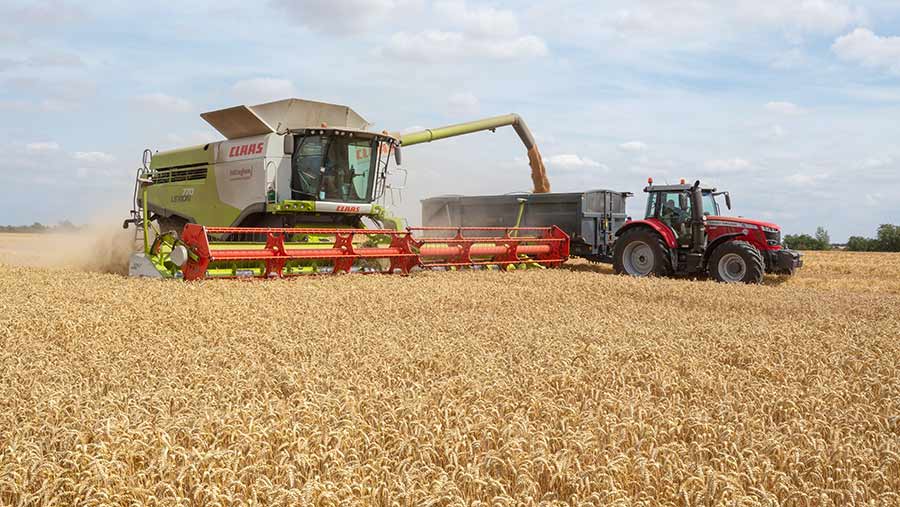FW Opinion: Stay safe as harvest 2020 gets under way
 © Tim Scrivener
© Tim Scrivener For most mixed and arable farmers, the start of harvest is a time of considerable excitement.
As the combines fire up and those gargantuan machines lumber into the first fields of winter barley and oilseed rape, there is a real sense of expectation. How will it cut? What will the quality be? How full will the barns be once all is done and dusted?
See also: For more details on harvest visit our Harvest advice area
For some growers, that process is now under way – and the picture is pretty mixed. While the first malting barley has been somewhat better than expected, early feed barley and oilseed rape crops have tended to yield lower.
About the author
 Philip Clarke
Philip Clarke
Executive editor, Farmers Weekly
Contact:
E: philip.clarke@markallengroup.com
T: @FWphilclarke
Read more articles by Philip Clarke
That is not surprising, given the growing season we have just had, with torrential rain last autumn, followed by a warm, wet winter which failed to kill the bugs, then a dry April and May to challenge both winter- and spring-sown crops.
But, just as there are question marks over the physical nature of this year’s crop, so too is there uncertainty about the economic prospects.
Most recently, grain and oilseed markets have been quite well supported by the ongoing weakness of sterling and prospects for smaller crops across Europe. But there are unknowns out there, too, not least the effect the coronavirus pandemic may yet have on the global economy as we head into recession.
Other factors closer to home could also cause additional stress when it comes to crop marketing. News of several fires at one of the UK’s principal deep water ports, Tilbury in Essex, is a particular worry, with large tonnages of grain shipped through that terminal every season.
This year, the pressure to get material away quickly – especially barley – will be considerable, with merchants keen to tie up orders for fear of being hit by tariffs should the UK fail to strike a trade deal with the EU during the Brexit transition.
In an unfortunate coincidence, another fire at the Erith oilseed crushing plant in Kent three weeks ago has led to the temporary closure of that facility. While the UK rape crop is expected to be smaller this year, the plant will be needed soon – especially as many growers do not have on-farm storage options.
Looking further ahead, the recent announcement that one of the leading buyers of milling wheat, Warburtons, has swapped its supply contract from farmer co-operative Openfield to joint venture Frontier has also raised concerns about what that could mean for farmgate prices further down the line.
On top of that, the AHDB has recently issued its long-term outlook reports for agriculture, suggesting that the arable sector will be among the hardest hit as the UK moves to a new support system based on public money for public goods.
For now, however, there remains a degree of optimism heading into harvest, with some crops having benefited from recent rains and prices holding up.
It’s certainly going to be a busy few weeks – which leads on to the matter of farm safety. Harvest is also one of the most dangerous times on many farms, as less-experienced staff are taken on, people rush to get jobs done and tiredness sets in.
So, as well as doing all those pre-harvest checks on the mechanical side of things, do take time to study the health and safety protocols, brief staff properly and ensure everyone knows the drill.
Don’t let harvest 2020 be one to remember for all the wrong reasons.
